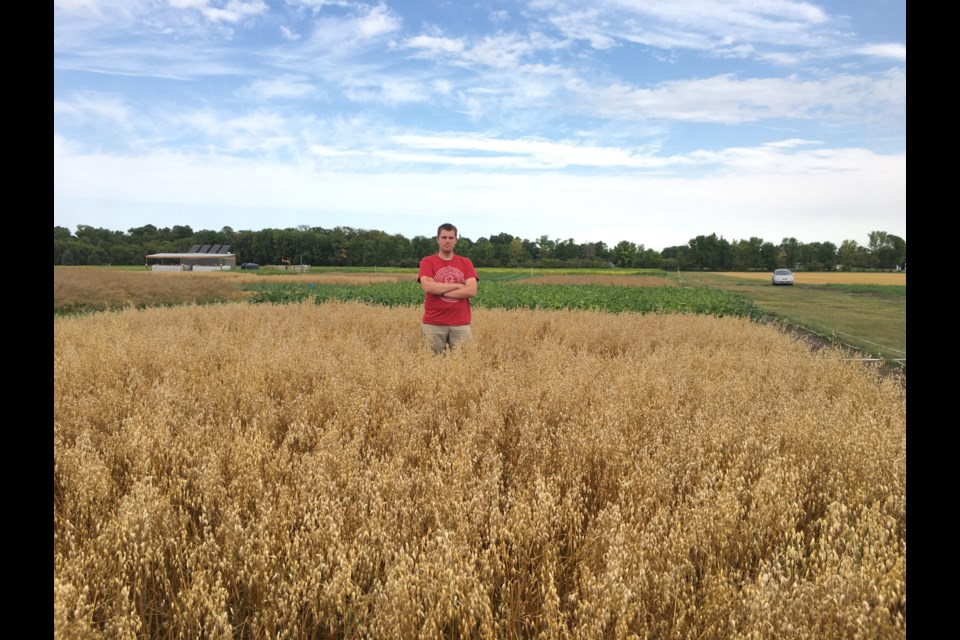WELLINGTON COUNTY - Farmers in Wellington County and across Ontario are making agricultural history by participating in the first ever survey being done on cover crops.
“We’ve heard from 599 farmers in Ontario, and out of those 599, 436 do a cover crop and 163 do not,” says Callum Morrison, a PhD student at the University of Manitoba who is conducting the research.
Partnering with the University of Guelph for this survey, Morrison says he is aiming to hear from 1,000 farmers across the province by April 1.
“We hopefully will reach it, we’re more than 50 per cent of the way there, but we’re also over most of the amount of time,” he says.
“We’re asking every single farm out there, every size... whether they are organic, non-organic, fruit or vegetable, every species of livestock, we just want to really reflect the real diversity out there which is farming in Ontario.”
Cover crops refer to plants that are planted in the soil after cash crops are harvested. These crops help to provide nutrients to the soil and protect erosion.
Some examples of cover crops used in Ontario include cloves, radishes, oats and rye.
“It’s mimicking nature and it’s trying to give nature very little time for when the soil would ever be left bare,” says Morrison.
“It’s far from what the native grasslands would be, but it’s a step in the right direction.”
The use of cover crops is more common in Ontario than in the prairies, where Morrison first started researching cover crop practices. Over here, he says the practice has been gaining momentum.
“It’s not uncommon for me to chat with a farmer who has been growing cover crops for over 20 years,” Morrison comments.
“Every farmer has heard of them and is familiar with them, which isn’t necessarily the case for the prairies, Ontario is decades ahead of where we are in the prairies.”
Looking at current data gathered, Morrison says a majority of the responses have come from Southwestern Ontario. In Wellington County, he says 19 farmers have participated in the survey, making it the 10th largest group in his data.
While a majority participate in the practice, Morrison says more farmers who don’t participate in the practice are needed to provide feedback.
“It’s really important to find out why things aren’t happening,” he says, “and then that leads to potential mitigation methods to try and get around challenges that those farmers are facing, because that could really benefit farmers on the ground.”
Interested in sustainability and looking to help improve the Canadian agricultural sector, Morrison hopes his research can be beneficial to all farmers. So far, the Ontario Cover Crops Steering Committee has taken a keen interest in his work.
“I’m hoping this research can really feed into future research,” says Morrison, “Especially if the government plans to develop policies on sustainable practices, which includes cover crops.”
To participate in the survey, click here.
